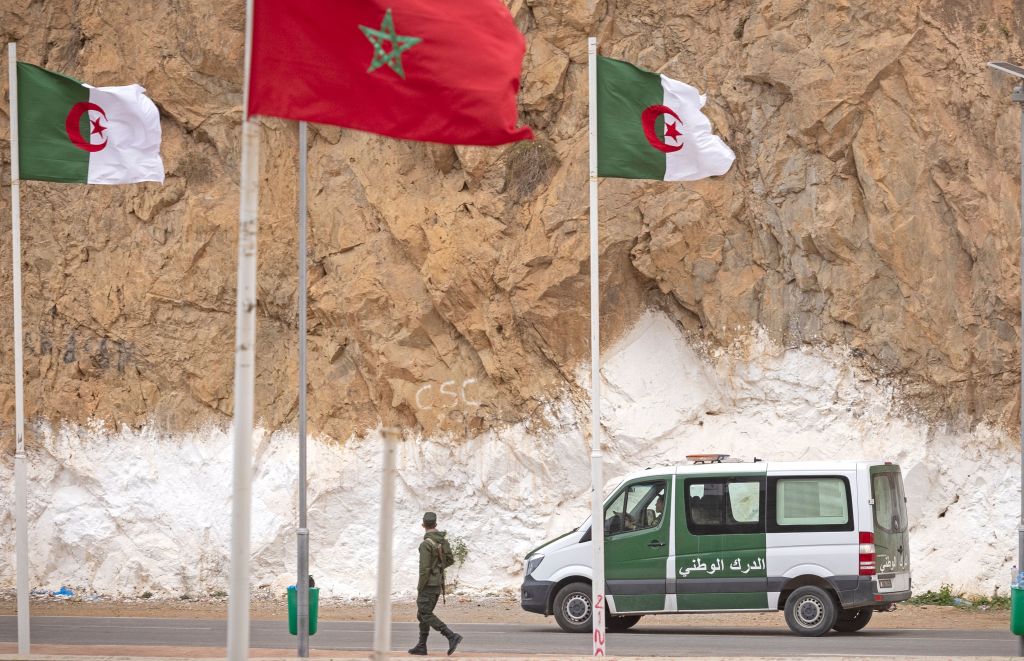ADF STAFF
The Maghreb region’s cold war between Algeria and Morocco continues to add new layers of frost.
The latest round of provocations began in early March with the opening of an office in Algiers for the Moroccan Republic of the Rif, a separatist organization reportedly funded by Algeria.
Algerian journalist Nasser Jabi suggested it was a response to Morocco’s stated support for the independence of the Kabyle people in Algeria, which itself was in response to Algeria’s hosting and funding of the separatist Sahrawi people of Western Sahara.
“We are facing a new level of escalation in Algeria-Morocco relations,” Jabi wrote in the daily newspaper al-Quds al-Arabi on March 10.
Tensions between the North African neighbors have simmered for decades but seemed to bubble over in recent years. Algeria severed diplomatic relations with Morocco in 2021 for what its foreign minister called a series of “hostile actions.”
In 2023, Algerian President Abdelmadjid Tebboune said deteriorating relations between the countries had reached “the point of no return.”
The primary issue between the two countries is their staunchly opposing positions on the Western Sahara dispute. Morocco claimed the territory as part of a 1975 agreement with Spain, while Algeria has supported the Sahrawi rebel group, the Polisario Front, in seeking independence.
While the Western Sahara dispute has been a festering tug-of-war between Algeria and Morocco for decades, the newer proxies are two separatist factions of the Amazigh ethnic group — the Kabyle and Rifian peoples — who are indigenous to North Africa.
Ferhat Mehenni, president of the provisional government of Kabylie, said Algeria’s support for the Sahrawi people is hypocritical.
“Algeria does not believe at all in the right of peoples to self-determination,” he told the Morocco World News website in March. “If it were otherwise, it would have recognized it first for Kabylie and the Kabyle people. This principle is used by Algeria to destabilize the countries with which it competes, nothing more and nothing less.”
Former Algerian diplomat Mohamed Larbi Zitout said Algeria’s support for the establishment of the Rif Republic office in its capital was reckless.
“The separatist card is harmful to both countries and is more like a destructive bomb,” he told news website Arabi21.
Experts believe the potential for military conflict between Morocco and Algeria is unlikely, but the two neighbors have formidable militaries. In 2022, the two countries were responsible for 74% of all defense spending in North Africa, according to the Stockholm International Peace Research Institute. Algeria spent $9.1 billion, while Morocco spent $5 billion.
In 2024, Algeria and Morocco have the two best-funded militaries on the continent, with budgets of $21.6 billion and $12.1 billion, respectively, according to Global Firepower’s annual list.
Like many analysts in the region, Jabi expressed concern that the military buildup could spark a greater conflict.
“At a time when there are very negative signs, such as the mini-arms race between the two countries, some forces within the respective regimes could think about using military force, even in a limited way, to move the issue forward,” he wrote.
Alberto Fernandez, vice president of the monitoring and analysis nonprofit Middle East Media Research Institute, believes that while relations are frosty, the prospects for war remain cold.
“The likely outcome of the arms race and saber rattling by both nations will be continued tension without actual explosion, spikes in incendiary rhetoric and symbolism, but war that is constantly approaching but never actually arriving,” he wrote.

